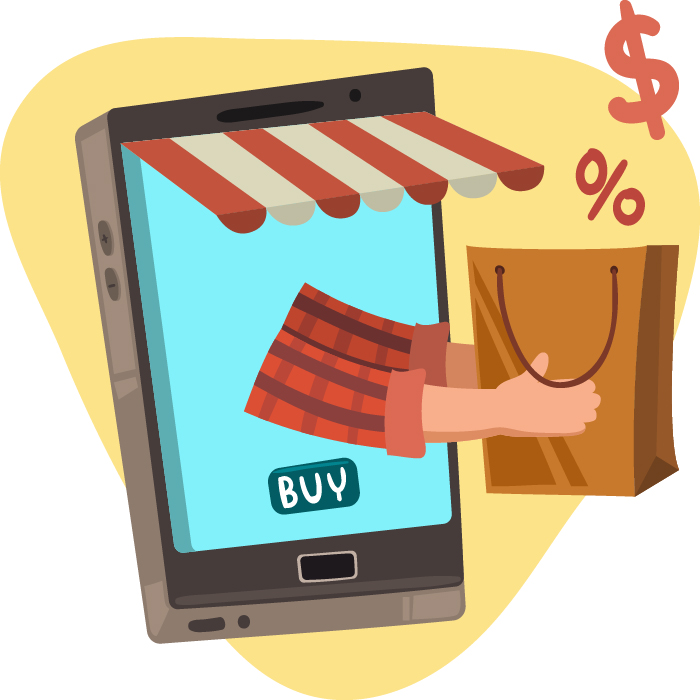Make a bigger impact in B2B sales with ERP and e-commerce integration
09 Aug 2019 | by Brett Mundell
Want to expand into online sales? Don’t overlook integrated systems to deliver a seamless shopping experience.
Businesses that don’t deliver a seamless shopping experience across both traditional and digital channels risk falling behind their competition.
To embrace e-commerce as a key part of your digital transformation process, you need to be able to coordinate information flows more readily, and access reliable, real-time information about sales, orders, and stock availability across your business.
Achieving visibility of all of your inventory at various points on the path to purchase is a significant undertaking. A flexible Enterprise Resource Planning (ERP) system that gives you control of stock and order fulfilment, perfectly matched with an e-commerce solution, makes it easier.
Are you meeting the needs of your business-to-business buyers?
Business-to-business buyers share a lot in common with individual shoppers — they want choice, convenience, value, and speed. But B2B purchasing is different in other ways.
There are usually more people involved in business-to-business purchasing decisions, leads can take longer to convert, and buyers often have higher expectations about the benefits a purchasing decision/relationship should drive — especially when it comes to high-value items.
Writing for Forbes, marketing expert Shama Hyder says the considerable changes that have occurred in the B2B buying space include: “Shorter sales cycles. Fewer contacts with sales reps. Stronger gatekeepers. Greater demand for data and evidence, with lower importance placed solely on singular relationships.”
Hyder suggests that winning over B2B buyers requires understanding and personalising interactions with a more diverse group of decision-makers and providing the right amount of detail at different stages of the sales cycle.
A digital channel delivers more sales
An e-commerce channel is an ideal opportunity to customise the content and experience that you offer B2B buyers. Websites can satisfy people’s desire to gather information independently and facilitate a smoother sales process.
The benefits of an online channel:
- Makes your product range available to more people
- Reduces operating overheads and cost of sale
- Gives people access to richer product information
- Makes buying more convenient and mobile
- Supports a wider range of payment options
- Enables self-service capabilities that customers want.
E-commerce doesn’t replace face-to-face, email and over-the-phone contact. Instead, adopting e-commerce makes it possible to gain additional sales and revenue through an omnichannel approach.
You can’t underestimate the importance of allowing people to research and shop via mobile devices — even business purchases of considerable size happen this way because so much of day-to-day business happens on the move. It also makes it easier to test the waters in overseas markets or enable interstate buyers to find and engage with your business.
Establishing a website and online product showcase will improve the speed and effectiveness of your marketing efforts, helping you close more sales with a broader range of customers.
Integrate enterprise software and e-commerce for sales prowess
Creating a cohesive experience across a number of touchpoints is inherently more difficult if your business has a lot of ‘islands of information’: where records, processes, and knowledge are managed separately within each team or functional area.
A single source of truth is critical. An ERP solution helps you to track, thoughtfully interact with, and accurately inform customers at any point in their lifecycle — by drawing on contextually rich information from your value chain.
An ERP solution links and streamlines activities including financial management, purchasing, customer management, sales, production, inventory, logistics, and after-sales service.
The good news is that leading enterprise software like SAP Business One, Sage X3, and MYOB Acumatica(formerly MYOB Advanced) are built on cutting-edge technologies that make it easy to connect and configure e-commerce applications for your unique needs.
When your ERP system is integrated with a powerful e-commerce platform, data about online transactions are shared and updated automatically. That means:
- Everyone is working from the same product and price lists
- Less chance of stock-outs
- Better information being fed into purchasing and production workflows
- Fewer ordering and fulfilment errors
- Quicker time to delivery and quote to cash
- A smoother customer experience and more expedient delivery.
Integrated systems that capture and combine information about on and offline activity also gives you more accurate data for reporting and analysis, supporting better decisions about how to function better, enhance customer experience and tackle new growth opportunities.
Unify traditional and digital channels by linking e-commerce with a robust enterprise solution to provide your B2B buyers with a tailored and consistent customer experience and drive more sales.
Contact Leverage Technologies now to begin a conversation with one of our experienced consultants about how your business can benefit from e-commerce.

Brett has more than 20 years of business software sales and company management experience. Brett has been involved in more than 300 ERP projects. His passion is customer satisfaction, making sure every client is more than just satisfied. Brett wants our customers to be driven to refer their friends and peers because we offer the best services and technology available and because we exceeded their expectations.





Leave a comment